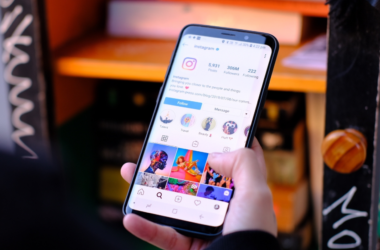- Tension: Many professionals feel trapped in unfulfilling jobs, questioning why they remain despite persistent dissatisfaction and a yearning for change.
- Noise: Society often promotes the idea that staying in a stable job is a virtue, emphasizing financial security and loyalty, while downplaying the psychological toll of prolonged dissatisfaction.
- Direct Message: Recognizing the psychological factors—such as the sunk cost fallacy, fear of the unknown, and perceived lack of alternatives—that keep us in unsatisfying roles is the first step toward reclaiming agency and pursuing a more fulfilling career path.
This article follows the Direct Message methodology, designed to cut through the noise and reveal the deeper truths behind the stories we live.
Emily sits across from me at a small wooden table, her coffee untouched, steam curling into the air. It’s a crisp Saturday morning at a workshop I’m hosting on personal empowerment, and the room buzzes with quiet chatter. But Emily is still, her gaze fixed on some invisible point beyond me. “I’ve been at my job for 15 years,” she says, her voice low, almost confessional. “Marketing exec, good salary, benefits—everything looks perfect on paper. But I wake up every day dreading it. There’s no spark, no meaning.” I ask the obvious question: Why stay? She hesitates, then lets out a small, tired laugh. “I don’t even know anymore. Mortgage, kids in college, the routine—it’s like I’m locked in.”
I’ve heard versions of Emily’s story countless times in my work as an entrepreneur and co-creator of The Vessel, a platform built to help people uncover purpose and reclaim their power. From corporate veterans to creatives stuck in dead-end gigs, the refrain is the same: a quiet desperation, a sense of being trapped in jobs that no longer fit—or maybe never did. It’s not just about money or laziness. There’s something deeper, a tangle of psychological instincts and practical pressures that keep us tethered to the familiar, even when it’s slowly eroding our spirits.
This isn’t a story about blame. It’s about understanding—peeling back the layers of why we stay, and finding the threads that can lead us out. Through Emily’s journey, and my own, I’ll take you into the hidden forces that anchor us to unfulfilling work, from the tricks our minds play to the systems we live in. And I’ll show you how awareness, paired with small, deliberate steps, can light the way forward. Because there is a way—messy, imperfect, but real. And it starts with a single question: What’s holding you here?
Emily’s 15 years at her company aren’t just a resume bullet point—they’re a weight she carries, a silent argument for staying put. “I can’t just throw it all away,” she tells me, her fingers tracing the edge of her cup. It’s a sentiment I recognize instantly: the sunk cost fallacy, that stubborn voice in our heads that says we’ve invested too much to walk away. Research from Thrive Global backs this up—people cling to jobs they’ve outgrown because abandoning the time and effort feels like a betrayal of their past selves. For Emily, those years are a house built brick by brick; tearing it down seems unthinkable, even if the foundation’s crumbling.
But it’s not just the past pulling at her. There’s fear, too—a primal instinct that flares up when she imagines leaving. “What if I can’t find anything else?” she asks, her eyes searching mine. “What if I fail?” It’s a fear rooted in our wiring, as Psychology Today explains—our brains crave the safety of the known, even when it’s a cubicle that stifles us. Emily’s built a life around this job: her identity as a provider, her social circle, the predictability of her days. Stepping into the unknown feels less like a leap and more like a freefall.
As we talk, I see another layer emerge—a story she tells herself to make it bearable. “Maybe this is just what work is,” she muses, shrugging slightly. “Maybe I’m asking for too much.” It’s cognitive dissonance at work, that uncomfortable clash between knowing she wants more and staying anyway. To quiet it, she rationalizes: the paycheck’s steady, the job’s not that bad. It’s a mental sleight of hand I’ve seen in others—dulling the ache of discontent until it feels normal. But it’s a fragile peace, one that keeps her from facing the truth: she deserves better than just getting by.
And then there’s the weariness. Emily’s tried to shift things—pitched ideas to her boss, applied for a few roles years back—but nothing stuck. “After a while, you stop fighting,” she admits. It’s learned helplessness, a term I first encountered studying at The London School of Economics, backed by studies from the American Psychological Association. When effort leads nowhere, we start believing we’re powerless, and the status quo settles in like dust. She’s not alone in this; a friend once told me, “It’s easier to keep going,” about his own soul-crushing gig. Easier, yes—until the weight of it crushes something vital inside you.
Of course, Emily’s story isn’t just about her mind. There are real chains, too—bills to pay, kids to support, a life that doesn’t pause for soul-searching. “I can’t afford to take risks,” she says flatly, and I nod. It’s not an excuse; it’s a fact. In a world where opportunities can be scarce, especially outside big cities, the stakes feel impossibly high. But there’s more to it—a system that often puts profits over people. I’ve seen it in the corporate grind: endless metrics, burnout normalized, managers who’d rather hit quotas than lift morale. A Deloitte report shows well-being boosts performance, yet too many companies shrug it off, leaving workers like Emily exhausted and expendable.
We’re fed a narrative, too—that success means climbing the ladder, cashing the checks, claiming the title. It’s a script capitalism thrives on, but it doesn’t have to own us. Emily bought into it once, chasing the corner office, only to find it hollow. “I thought this was what I wanted,” she says, shaking her head. “Now I’m not sure what I want.” That’s the crack where change begins—not in rejecting responsibility, but in redefining what matters.
I lean forward, resting my elbows on the table. “What if you’re not as stuck as you think?” I ask. She blinks, caught off guard. It’s a question I’ve asked myself, too, back when I was navigating my own path from a traditional career to co-founding Ideapod and The Vessel. For me, the shift started with awareness—naming the forces holding me back, from fear to sunk costs. It’s not about guilt; it’s about clarity. When you see the sunk cost fallacy for what it is, you can whisper back, “The past is gone—what now?” When fear looms, you can call it out and take one small step to prove it wrong. Understanding isn’t the end—it’s the beginning.
Emily tilts her head, considering. “I never thought of it like that,” she says slowly. “Maybe there’s a way to… I don’t know, test the waters?” I smile. That’s the spark—small, but real. I tell her about my own journey, how I didn’t quit overnight but explored gradually: courses, conversations, side projects that grew into something bigger. You don’t have to burn your life down to change it. A Gallup study shows meaningful work fuels happiness—why not chase that, even in bits?
That’s when I mention The Vessel, the platform I built with a mission to guide people like Emily toward purpose. “There’s a masterclass you might like,” I say, pulling out my phone. “It’s called ‘Free Your Mind,’ led by Rudá Iandê.” Rudá’s a shaman, a friend, and a collaborator whose wisdom has shaped my own path. We met years ago at a retreat in New York City, his sharp insights cutting through my doubts like a blade. Together, we crafted this masterclass to help people shed limiting beliefs—those stories like “I can’t” or “This is all there is”—and reconnect with what drives them. It’s not airy self-help; it’s raw, practical, grounded in exercises that spark real shifts.
“Rudá’s got this way of seeing through the noise,” I tell her. “He helped me see I wasn’t trapped—just scared. Maybe he can do the same for you.” She nods, intrigued, and I jot down the link: thevessel.io/free-your-mind-masterclass. “It’s a start,” I add. “One step. You don’t have to quit tomorrow—just peek at what’s possible.”
Months later, Emily emails me. “I’m still at the job,” she writes, “but it’s different now. I did ‘Free Your Mind,’ and it shook something loose. I’ve started a side project—writing, of all things—and I’m talking to people in creative fields I’ve always been curious about. It’s not a new life yet, but it’s progress.” I grin, reading her words. Progress, not perfection—that’s the key. She’s not alone, either. I’ve seen others take that first step—updating a profile, joining a webinar, reaching out to someone who inspires them—and watched it snowball into new careers, businesses, lives that fit.
This isn’t just Emily’s story, or mine—it’s ours. The system might stack the deck, but we’re not powerless. Understanding why we stay—the psychology, the practicality—cracks the door open. Small steps push it wider. Maybe it’s signing up for “Free Your Mind” today. Maybe it’s dusting off a dream you shelved. Maybe it’s asking, What do I want, really? You don’t need a grand escape—just a nudge toward something truer.
At The Vessel, we’re here for it—tools, community, a belief that you deserve more than just surviving. Because every time one of us breaks free, we chip away at a world that banks on our discontent. So take that step, however tiny. Emily did. I did. Your future’s waiting—and it’s cheering you on.






